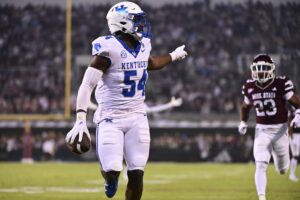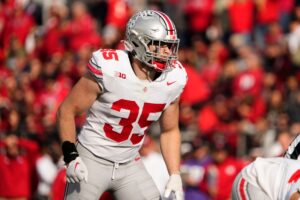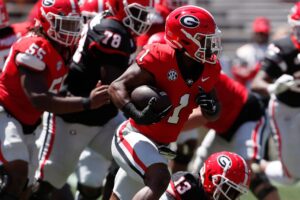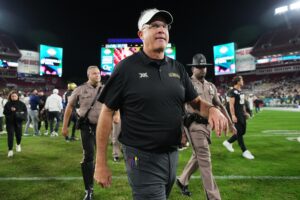As of September 8th, 96 FBS players have chosen to opt-out of the 2020 NCAA college football season because of the COVID-19 outbreak. This includes some big names, such as LSU wide receiver Ja’Marr Chase, Georgia quarterback Jamie Newman, and Oregon offensive tackle Penei Sewell. Many of these players will not play college football again, as they will be heading to the 2021 NFL Draft. COVID-19 could be a major threat to many players currently playing or even those choosing to sit out.
College Football in the Age of COVID-19
Frank Darras is among the leading disability and insurance attorneys in the nation. Darras has worked with numerous athletes over the years to help protect their future. With a pandemic putting athletes at risk, the Southern California attorney has worked towards helping these players protect their potential future earnings.
“This virus doesn’t care if you play in the NFL, the SEC, the ACC,” said Darras in a recent conversation with Last Word on College Football, “It can cripple the largest lineman. It can break down a defense. And it can sideline an offense in a hurry.” This is an issue for players that are relying on a good draft position and a big rookie contract along with endorsement money. Even if a player’s career does not end at the hands of COVID-19, it can still hurt their draft position. A lower draft position means less money for the player.
Insurances for Players
There are potential protections in place for college players. Career-ending or drop-in-slot insurances are offered by several firms. Lloyds of London and Houston Casualty are the two biggest firms offering such policies. These coverages can be purchased by players directly or by the universities for the players. It could also be paid for with a marketing advance from an agent for players who are declaring for the draft. This insurance typically costs a player roughly $6,000 for every million dollars of coverage. Darras also said that schools should be using these policies as a recruiting tool. This could be used as a way to show players that they are invested in their long-term futures.
Darras is also a major proponent of name-image-likeness laws across the country. “If you are a water polo player, shouldn’t you be able to teach a swim lesson to earn money and raise $6,000 to protect your potential future income?” says Darras. It raises an intriguing point that these potential endorsements for college athletes could be more important than expected.
Coverage is not just for players either. Darras says that he and his firm are recommending that coaching staffs get career-ending insurance, as well. This is because many coaches are not in as good of health as athletes. Thus, they are more at risk for the disease. This could be especially important for assistant coaches, as they are not making the same amounts as someone like Nick Saban.
Insurance Claim Litigation
These coverages are not bulletproof for players. Players, such as Newman, who choose to opt-out and potentially fall in the draft because of a lack of film, would not be covered under such policies. The players must be able to prove that their draft stock drop was in direct relation to an injury or illness. This specific case would be proving it happened because they had COVID-19. In addition to this, according to Darras, players must avoid making any mistakes when filling out the application. The firms will use anything they can to avoid paying out these large policies.
Even when a player has a successful claim, it could take up to two years for the payout. There is usually a one-year and one-day period from the time of the claim to the time that the insurance company will conclude their investigation and the “claim will be ready to be paid,” stated Darras. The following year could be filled with “horrifically-expensive” litigation to appeal the denial of the claim. That includes $100,000 for “filing the suit, depositions, experts, and the trial,” says Darras. That is all in addition to the attorney’s fees.
What the Future Holds
Even with an upfront cost and the potential litigation, Darras still highly recommends that athletes take out some form of protection. “Let’s protect these kids,” says Darras, “This is their shot. This is what they have worked their whole life for. It is not a whole lot of money to protect their financial future. We are in an unprecedented new normal.”
The 32-year litigation veteran compared what is happening now to the concussion era. “It changed the way we play football,” says Darras, “If you got knocked out, it was no longer a badge of honor. It was a time to make sure that you had time to heal and did not have concussion after concussion after concussion.” The virus could have a long-lasting effect on the way that sports are played and spectated across the spectrum.
Darras also asserts that the NCAA was wildly unprepared for something like this. He points out Wimbledon, who had insurance policies in place to avoid losing a potential $20 million. The NCAA and its universities had no policies of any sort in place in case of a stoppage of service. It is not something anybody was expecting to happen. However, the fact that another sporting organization had something in place goes to show that the NCAA could have done something similar.
All-in-all, this virus is going to have a lasting impact on the way that college football takes place for years to come. It could change the game as a whole. Maybe, more importantly, it could change the course of a player’s career. COVID-19 has and will continue to change the landscape of college football in the coming years.






